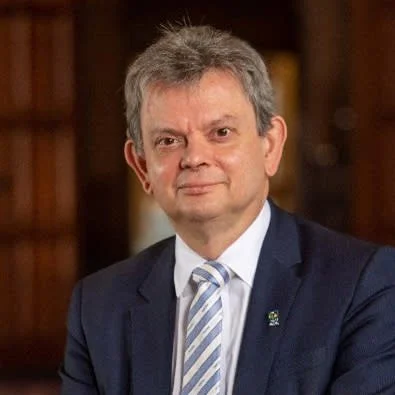Professor Sir Anton Muscatelli joins Cairney & Company as Strategic Adviser
Cairney & Company is delighted to welcome Professor Sir Anton Muscatelli as Strategic Adviser.
Professor Muscatelli brings a wealth of experience; not only as a renowned leader of one of the foremost academic institutions in the United Kingdom, the University of Glasgow, but also as a distinguished economist, having advised the Scottish and UK Governments, European Commission and the World Bank. Sir Anton’s insight on leadership and the current higher education climate will be invaluable to us and our clients.
To mark this exciting appointment, Cairney & Company Senior Consultant Annarosa Muscatelli asked him to share his thoughts on fundraising in HE in the current climate, and specifically how to both foster a successful working relationship between an Advancement Office and a Vice-Chancellor, and the key elements of seeking investment for advancement at a time when budgets are tight.
Annarosa: The role of Vice-Chancellor is pivotal in ensuring the success of fundraising and alumni engagement, from meeting with key donors to making asks and engaging with alumni. What is it that makes a great working partnership between the Advancement Team and the Vice-Chancellor’s Office?
Anton: A close working relationship between the Advancement Team and the Vice-Chancellor’s Office is crucial. I am a great believer in a model of integrated advancement, which brings together fundraising and alumni relations with marketing, comms, and internationalisation. Looking across all these functions and optimising the way the Vice-Chancellor can add value is optimal, in my view.
Annarosa: What is the role of academic leadership more generally (VPs/Deans/Senior Level Academics) in the context of advancement? Why is it important that they engage with the Advancement Team?
Anton: The involvement of the whole senior leadership in advancement activities is crucial. No matter how much time the Vice-Chancellor dedicates to this important part of their role, they cannot succeed without the wider support of other leaders. Ensuring that advancement is regularly discussed by the whole senior team, and also major academic leaders in the institution is key.
Annarosa: As we know, the value of education is under scrutiny globally and there has never been a more critical time for advancement to play a role in securing funding for scholarships, the progression of the research agenda and supporting students to ensure their success. What needs to change in advancement to ensure that the universities of the future thrive and survive?
Anton: At the moment higher education is under pressure due to financial factors, but also because societal and political conflict can lead to questions about the sector’s ‘social licence’. As the key outward-facing function of a university, our advancement professionals are on the front line on these issues: they have to support the University’s leadership on these matters and ensure that the institution can respond to these critical challenges.
Annarosa: Why are you looking forward to working with Cairney & Company and our clients?
Anton: It’s really the integrated advancement approach that Cairney & Company takes that made them an attractive proposition – they really understand where the sector is going, the strategic pressures it’s facing, and they take a holistic approach to their work with clients. They have been advocating a model of integrated advancement for the last 10 years. Now more than ever universities need to break down their silos in their external engagement/advancement functions, and take a ‘One Institution’ approach to engagement. I thoroughly look forward to working more closely with the team and their global clients.
Annarosa: Finally, what gets you thinking big?
Anton: I have always enjoyed tackling a major strategic challenge. It makes you think beyond making incremental improvements to an organisation or an institution like a university. It allows you to draw on the fundamental ambition of why your organisation/institution is there and why it matters to society, and it makes you ready to challenge your assumptions.

